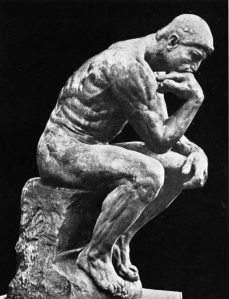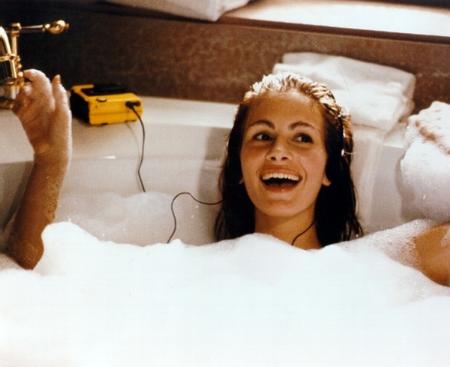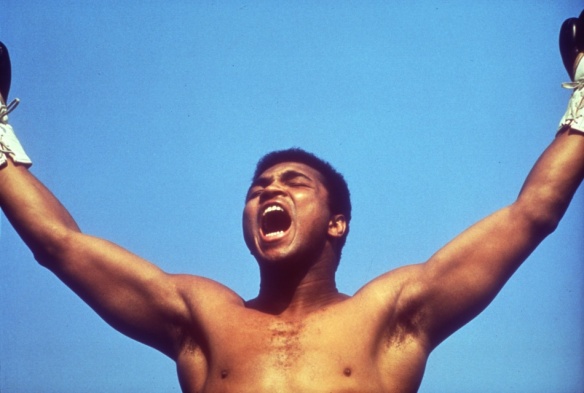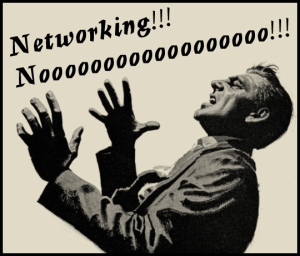 On a recent coaching call, one of my clients said, “I just spend so much time waiting in this business — it’s exhausting!” and the sentiment really resonated with me. In her case, she was at an industry meet-and-greet and she waited about two hours, watching other actors get up and do their sides, before it was her turn to perform for the casting director, after which she went home and waited even longer the following day to find out if she got an audition. She said to me, “I’m getting so tired of waiting around to be seen.” It got me thinking: if every actor reading this listed in the comments how many hours they’ve spent waiting (on set, in line at auditions, after a meeting for the phone to ring, for that casting director, agent, manager, producer, writer, etc., to choose them…you get the idea), I’ll bet it would make your eyes pop out of your head Looney Tunes style.
On a recent coaching call, one of my clients said, “I just spend so much time waiting in this business — it’s exhausting!” and the sentiment really resonated with me. In her case, she was at an industry meet-and-greet and she waited about two hours, watching other actors get up and do their sides, before it was her turn to perform for the casting director, after which she went home and waited even longer the following day to find out if she got an audition. She said to me, “I’m getting so tired of waiting around to be seen.” It got me thinking: if every actor reading this listed in the comments how many hours they’ve spent waiting (on set, in line at auditions, after a meeting for the phone to ring, for that casting director, agent, manager, producer, writer, etc., to choose them…you get the idea), I’ll bet it would make your eyes pop out of your head Looney Tunes style.
Unfortunately, waiting is not going away — it’s an unavoidable reality. So, rather than looking at it as a nuisance, what if you looked at it as a natural part of the process? When you think about it, there are plenty of instances in life where waiting isn’t such a big deal. Like taking a bath. When you turn on the hot water and pour in the bubble bath, you know that you’re going to be waiting ten minutes before you can get in. And you accept it, because that’s part of the bathing process. So, while it may seem like a stretch to equate managing your career with getting into a steaming tub, both of them are processes — one a bit more complex than the other, but processes nonetheless. And, like anything else in life, it’s a matter of weighing the pros and cons. Waiting ten minutes for the tub to fill up is worth the wait because a hot bath is relaxing. If you disagree, then I’m guessing that you wouldn’t bother with it in the first place. So, when it comes to your career, think about what you’re ultimately waiting for. In other words, look back at your goals. If they’re strong, and you feel passionately about them, then the wait should be worth it. And if that’s the case, you need to accept that waiting as a natural and necessary part of the process, not as a nuisance. Trust me, it’ll make your life a whole not easier.
Now, I’m sure that there are plenty of you out there that are saying to your laptop screen, “Sure, Betsy, that all sounds very lovely and Zen. But, there’s a big difference between ten minutes and the amount of time I wait around for everything in this industry. It kills me.” And to that I say: no one said you only had to wait while you wait. So, the last thing you want to do is merely kill time by checking your Facebook wall every two minutes or playing Angry Birds until you hear something. Believe me, that will drive you crazy in the end. Instead, why not think about what else you could be doing for your career during that time. Like I always tell my clients, most of the work you do will come during what most people consider “down time.” Instead of pacing back and forth, you could update your website or resume. Maybe there are follow-up emails you need to write or contacts you’ve been meaning to get in touch with. And don’t forget about evaluating the state of your goals — things are constantly changing in your career and the industry, so why not take advantage of that waiting time and make sure your goals are in shape. The point is not to be at the mercy of someone else’s timetable — be proactive, not reactive, and harness that time spent waiting to your advantage.
Look, I know it’s not always easy. And you’re going to have your moments. In fact, just the other morning, yours truly had to remind herself of the very thing I’m writing about. When I got to work there was a line of people waiting for the elevator, and as any of you who’ve been to our offices know, those elevators can take FOREVER. I felt put out, and I might’ve even huffed out loud. But, a second later, I was laughing to myself about how ridiculous that response was, and wouldn’t you know it, I was in my office a few minutes later, doing my thing.
So, we are human. We have egos. Especially in this day and age of instant gratification, we want things to happen when it’s convenient for US. And we design our expectations accordingly, forgetting that we are not, in fact, the center of the universe. There are a WHOLE host of other people, places, and things working with us to get everything done. How about we work with all of them too? This requires that magic word – Patience. Which requires another magic word – Trust. My coach once shared a really cool mantra to me: “I choose to trust that all is unfolding perfectly. “ When I have chosen to trust this, it’s worked. No kidding.
So, the next time you find yourself waiting (which is probably sooner than later) try shifting your perspective in the moment by practicing some good old-fashioned Patience*. You might just discover that everything IS unfolding perfectly.
*”But Betsy,” you might be wondering, “HOW do I do this?” Glad you asked. It’s easy. Breathe. And then Repeat.



